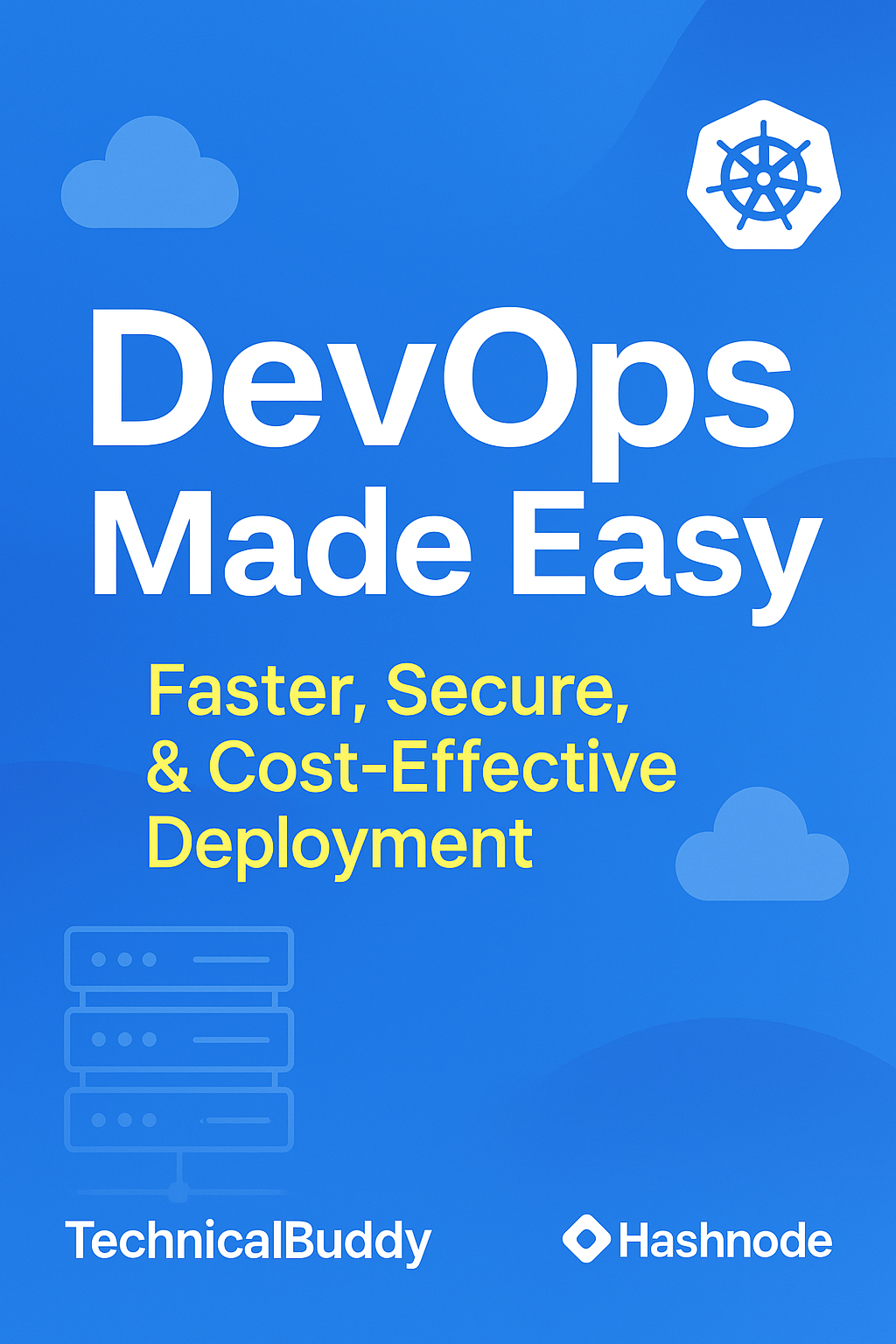DevOps Explained: A Beginner’s Guide to Faster & Smarter Software Delivery
 Mahesh Pawar
Mahesh Pawar
Introduction
In today’s fast-paced tech world, businesses need to deliver software faster and more reliably. That’s where DevOps comes in! If you’re new to DevOps, this guide will explain what it is, why it matters, and how you can get started.
What is DevOps?
DevOps is a combination of Development (Dev) and Operations (Ops). It’s a culture and set of practices that aim to:
Automate and streamline software development.
Improve collaboration between development and operations teams.
Enable continuous delivery of high-quality applications.
In simple terms, DevOps helps companies release software faster and with fewer errors.
DevOps Definition:
Anything that helps you to deploy your product or service to the market in a better, cheaper, faster, and more secure way is DevOps.
Why is DevOps Important?
Traditional software development had separate teams for writing code, testing, and deployment. This led to:
Slow releases due to long approval cycles.
Frequent bugs because of poor collaboration.
Operational bottlenecks due to manual deployment processes.
With DevOps, teams work together, automate tasks, and use tools to build, test, and deploy software continuously.
Key DevOps Practices
1. Continuous Integration (CI)
Developers frequently merge code into a shared repository, ensuring that it is automatically tested to detect issues early.
2. Continuous Delivery (CD)
Code is automatically built, tested, and deployed to production, making software releases faster and more reliable.
3. Infrastructure as Code (IaC)
Instead of manually setting up servers, configuration is managed through code using tools like Terraform, Ansible, or CloudFormation.
4. Monitoring & Logging
Tools like Prometheus, Grafana, and ELK Stack help track system performance and troubleshoot issues.
5. Microservices & Containers
Applications are broken into smaller services using Docker & Kubernetes, making them easier to scale and manage.
DevOps Toolchain
DevOps uses a variety of tools for automation and efficiency. Here are some of the most popular ones:
| Stage | Tools |
| Version Control | Git, GitHub, GitLab |
| Continuous Integration | Jenkins, GitHub Actions, CircleCI |
| Continuous Delivery | ArgoCD, Spinnaker, FluxCD |
| Configuration Management | Ansible, Chef, Puppet |
| Containerization | Docker, Podman |
| Orchestration | Kubernetes, OpenShift |
| Monitoring & Logging | Prometheus, Grafana, ELK Stack |
| Security | SonarQube, Snyk, Trivy |
How to Get Started with DevOps
If you’re new to DevOps, here’s how you can begin your journey:
1. Learn a Programming Language
- Python, Bash, or Go are widely used in DevOps.
2. Master Version Control (Git)
- Learn how to use Git for code management.
3. Understand CI/CD Pipelines
- Set up a simple pipeline using GitHub Actions or Jenkins.
4. Work with Containers (Docker & Kubernetes)
- Learn how to build and run containerized applications.
5. Explore Infrastructure as Code (IaC)
- Use Terraform to create cloud infrastructure.
6. Practice on Cloud Platforms
- Try AWS, Azure, or Google Cloud for hands-on experience.
7. Get Certified!
- Certifications like AWS DevOps Engineer, Azure DevOps, Kubernetes CKA can boost your career.
Conclusion
DevOps is transforming software development by making it faster, more efficient, and more reliable. If you want to start a career in DevOps, learning the right tools and practices is key. 🚀
Ready to dive deeper? Start experimenting with Git, CI/CD, Docker, and Kubernetes today!
🔹 Have any questions about DevOps? Drop them in the comments below!
Subscribe to my newsletter
Read articles from Mahesh Pawar directly inside your inbox. Subscribe to the newsletter, and don't miss out.
Written by

Mahesh Pawar
Mahesh Pawar
DevOps professional with over 5+ years of hands-on experience supporting, automating, and optimizing mission-critical deployments using CI/CD pipelines and DevOps processes. Proficient in working with Agile methodologies to efficiently accomplish project milestones within specified time frames. Strong experience on DevOps tools and technologies, build & release management and deployment automation. Experienced in CI/CD methodologies using Jenkins, GitHub Actions and Azure Devops/Pipelines. Extensively worked with Jenkins, GitHub Actions and Azure Pipelines for Continuous Integration, as well as end-to-end automation for all builds and deployments. Strong communication and team player skills, with proficiency in quickly grasping new concepts and utilizing them productively. Capable of multitasking and working effectively both independently and collaboratively within a group setting.